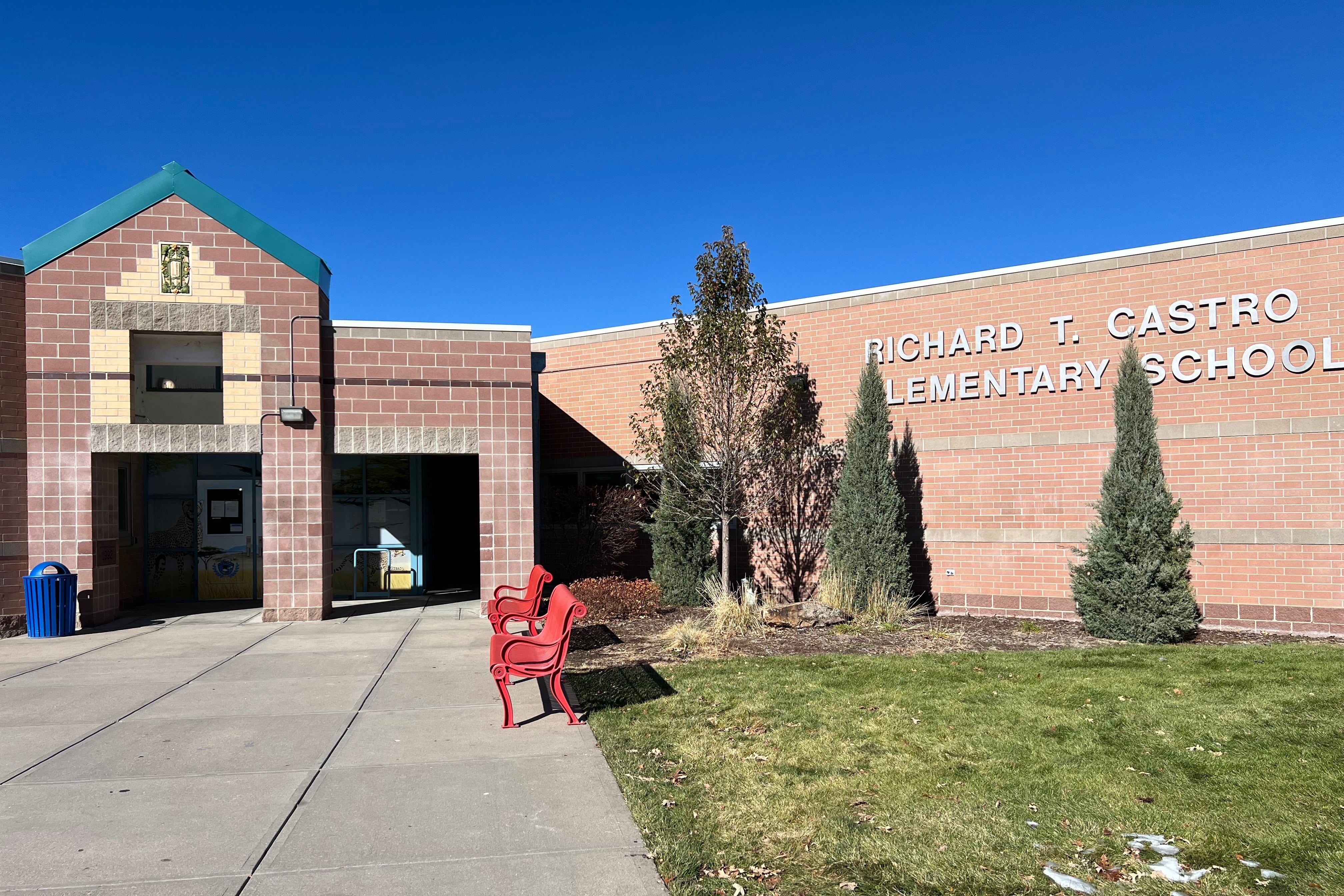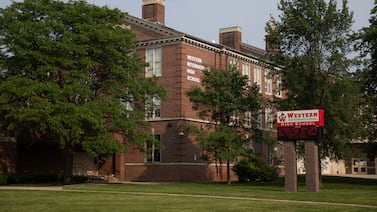Sign up for Chalkbeat Colorado’s free daily newsletter to get the latest reporting from us, plus curated news from other Colorado outlets, delivered to your inbox.
The Denver school board rejected a request Thursday from a charter school to move into a soon-to-be-vacant elementary school building.
Compass Academy, a charter middle school devoted to bilingualism, asked to move from its current location inside district-run Abraham Lincoln High School to nearby district-run Castro Elementary School — or any other building in southwest Denver with space for Compass’ 200 students.
Compass made the request under a state law meant to help charter schools with one of the biggest challenges they face: finding building space. Although Compass originally envisioned sharing a building with Castro, that school is now set to close in June. Castro is one of 10 schools that the school board recently voted to shutter or shrink due to declining enrollment.
The board’s school closure policy directs Superintendent Alex Marrero to involve the community in deciding how to repurpose any closed school buildings. Because that hasn’t happened yet with regard to Castro, Marrero recommended the board reject Compass’ request.
Board members unanimously agreed.
But they also implied that the conversation isn’t over. They said Compass could participate in a separate process set to begin next week to help determine how to use five elementary school buildings — Castro, Schmitt, Palmer, Columbian, and the International Academy of Denver at Harrington — that will be made vacant this summer due to the board’s recent vote.
“I believe this is all going to work out,” Marrero told the board.
However, he noted that Castro’s building in particular is “highly desirable.” Several community members advocated Thursday for a different school, Summit Academy, to move into Castro. Summit Academy is a district-run high school that serves students who’ve struggled elsewhere.
The state law Compass used to apply for the relocation requires school districts to publish a list of all vacant or underutilized buildings by Nov. 1 each year. Charter schools have 45 days to apply to use those buildings, and the district has 90 days to decide.
Compass has confronted challenges with finding building space before.
Compass Academy opened in 2015 with a vision that all of its students would earn a seal of biliteracy affirming that they can read and write in two or more languages. The charter school was founded with help from City Year, an AmeriCorps program that deploys young adults to mentor and tutor students who face academic or other challenges.
The decision to place Compass Academy inside Abraham Lincoln High School a decade ago was controversial. Lincoln students urged the district to “fix Lincoln first!” and boost the high school’s enrollment, rather than allow a middle school to move into the building.
At the time, a majority of school board members believed co-locating Compass and Lincoln was a good idea because both schools are focused on English language development. The demographics of the two schools are also similar: Nearly 90% of students at each school are Hispanic, and about half are learning English as a second language.
But the schools have encountered “pain points,” as Marrero put it, in sharing a building.
Compass’ application to move to the Castro building described it as a win-win for both Compass and Lincoln. The move would return the second floor of Lincoln’s building to the high school, which is currently requiring teachers to share classrooms, the application says.
A relocation would also provide more space for Compass, which the application says is “forced to put students in classrooms that were never meant for that purpose.” Six of those classrooms have no windows, one has no air conditioning, and one has no heat, it says.
Moving Compass to a nearby district-run elementary school that serves a similar student population would create a “bilingual pathway” from kindergarten through eighth grade, something the application says the southwest Denver community has asked for.
“It is time to give Abraham Lincoln their space back to innovate and for Compass to find a new location with the right amount of space so that both schools can thrive and serve Denver’s students well,” the application says.
But in addition to concerns about the timeline and process, district officials cited Compass’ low test scores and dwindling enrollment as reasons to deny the relocation request.
Compass has struggled academically and faced scrutiny by the Denver school board, which has continued to renew the charter school’s authorization for a few years at a time. This year, Compass earned a state rating of “improvement,” signified by the color yellow.
The ratings are largely based on how students score on state math and literacy tests. Last spring, 13% of Compass students met or exceeded expectations on the state literacy test, and just 2% met or exceeded expectations on the math test.
Melanie Asmar is the bureau chief for Chalkbeat Colorado. Contact Melanie at masmar@chalkbeat.org.






